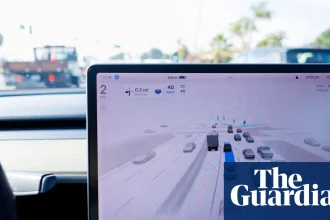This is Follow the Money, our weekly series that unpacks the earnings, business, and scaling strategies of African fintechs and financial institutions. A new edition drops every Monday.
It is no longer news that Nigeria wants to collect tax on crypto proceeds. TechCabal has now learned exactly how it will work.
If you spend $2,000 (₦2.93 million) on bitcoin in a year and sell it for $4,000 (₦5.86 million), your gain of $2,000 (₦2.93 million) will be subject to personal income tax. The first ₦800,000 ($545.82) of that profit will be tax-free, and the rest (₦2.13 million/$1,454.18) taxed at 15%, bringing your total payable tax to ₦319,704 ($218.13).
However, if you buy bitcoin at $2,000 (₦2.93 million) and sell it for $1,500 (₦2.19 million), you would have made a loss of $500, and under the new tax laws, you will owe nothing. Crypto profits are now subject to personal income tax.
“The new law that will take effect in January 2026 will tax you if you make gains on crypto and totally ignore you when you make losses,” Taiwo Oyedele, chairman of the Presidential Fiscal Policy and Tax Reforms Committee, told TechCabal during a media interaction on Friday. “It is not a crime to invest in crypto. If your net gain is small, below the threshold (₦800,000), your tax is 0%.”
Why this matters
For Nigeria, where crypto transactions reached $92.1 billion in value between July 2024 and June 2025, the new tax regime is an attempt to tap into a fast-moving corner of the economy that the government has long struggled to understand.
It also marks a shift from its earlier cautious stance on digital assets to recognising crypto as a legitimate contributor to its plan to raise the tax-to-GDP ratio from under 10% to 18% by 2027.
While the $92.1 billion represents total transaction value, not profits, even a portion as small as $10 billion, when taxable, will help the country unlock valuable revenue as it continues to wean itself away from oil revenues.
The journey to crypto taxes
Until now, Nigeria’s relationship with crypto has been uneasy. In 2021, the Central Bank of Nigeria (CBN) banned banks from facilitating crypto transactions, only to lift the restriction in 2023.
The Finance Act of 2022 introduced a 10% tax on profits from digital assets, including cryptocurrencies, but enforcement never took off.
By July 2024, KuCoin, a global crypto platform, announced it would begin charging 7.5% value-added tax (VAT) on transaction fees to comply with the Federal Inland Revenue Service (FIRS)’s requirement. Around the same time, the Securities and Exchange Commission (SEC) granted provisional licences to local players like Quidax and Busha.
In March 2025, the Investment and Securities Act (ISA) 2025 officially recognised virtual/digital assets as securities and brought Virtual Assets Service Providers (VASPs), Digital Asset Operators (DAOPs), and Digital Asset Exchanges (DAXs) under the SEC’s regulatory scope.
Compliance as a burden
Under the new rules, crypto traders must self-report their profits.
“A taxable person engaged in virtual asset activities shall keep records and books as provided under section 31 of this Act and report virtual assets activities to the relevant tax authorities,” the law noted.
Beyond self-reporting, crypto exchanges must monitor, record, and report transactions to the tax authority. “Provide periodic reports of customer transactions to the Service, including but not limited to, exchange, sale, or transfer of virtual assets,” it added.
Operators that fail to comply will be subject to a penalty of ₦10 million ($6,693) in the first month and ₦1 million ($669) for every subsequent month. Their licences will also be at risk of suspension or revocation by the SEC.
VASPs must also report large or suspicious transactions to the tax authorities and the Nigerian Financial Intelligence Unit (NFIU), among other new compliance expectations.
Fix the house before taxing it
To industry players like Chimezie Chuta, founder and coordinator of Blockchain Nigeria User Group, an industry association, taxing crypto transactions feels like putting the cart before the horse.
“You want to tax crypto traders, but you are still blocking the website of major exchanges, both foreign and local. How do you expect people to trade if Binance, Bybit, and Coinbase are still restricted?” he told TechCabal.
He argues that before any tax regime can work, the government must fully lift restrictions and clarify how banks and exchanges will cooperate.
“You can’t just bring out a tax regime without clarifying the contradictions,” Chuta said.
He noted that banks and crypto operators will bear a lot of the enforcement responsibilities based on how the industry is currently structured.
“Government is going to chase virtual asset service providers because they provide the gateways where people engage in crypto,” he said. “They will chase the banks too, because those are the people who provide the off-ramp for those holding crypto. In a system like Nigeria, where there are no tools that are not just used to track individuals. They have to rely on institutions.”
In February 2024, at the height of its standoff with Binance, the Nigerian government asked telecom and internet service providers to restrict access to several crypto platforms, including Binance, OctaFX, and Coinbase. Those blocks remain partly in place.
Across Africa, crypto taxation is gaining momentum as governments try to draw clear lines around the industry. Kenya wants to charge a 10% excise duty on crypto transactions, while South Africa wants up to 18% tax on crypto returns.
For Oyedele, Nigeria’s new laws are fair. “We think that the regime we have now for virtual assets, including crypto, is fair, is balanced, and is globally competitive,” he said.
While crypto proceeds could offer a sizeable new revenue stream, the government must first convince the people it once drove underground to step into the light.
Note: exchange rate used: ₦1,465.68/$
Mark your calendars! Moonshot by TechCabal is back in Lagos on October 15–16! Meet and learn from Africa’s top founders, creatives & tech leaders for 2 days of keynotes, mixers & future-forward ideas. Get your tickets now: moonshot.techcabal.com



















